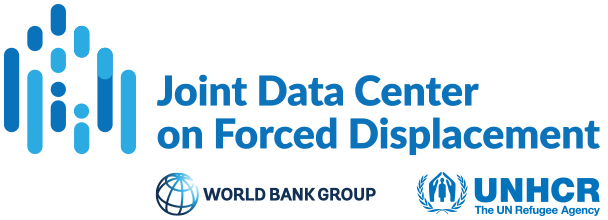2nd Research Conference on Forced Displacement
Date: January 20-22, 2022
Location: Online
Conference Report
The Second Research Conference on Forced Displacement featured academic presentations, keynote speeches and policy discussions. The format favored a dialogue between participants, with the aim of facilitating their interaction and the intellectual cross-fertilization of their respective areas of work.
High-level Read-out
Over three days, some of the best (socioeconomic) researchers and practitioners discussed the latest findings on forced displacement at the JDC’s Second Research Conference. Close to 800 people registered for the event and some 100-500 participated virtually.
The event drew attention to important evidence and findings that we believe have direct relevance to both policy-makers, World Bank/UNHCR’s operations, and beyond. Here are our eight high-level take-aways:
1. To quote one of our keynote speakers, there has been an “explosion” of research on forced displacement, not least in economics. From a field dominated by public health researchers, legal scholars and sociologists, there is now broad interest also from economists, political scientists, data scientist, among other disciplines. This statement is backed up by the empirical evidence presented in a recent paper by JDC’s Domenico Tabasso and Filippo Dionigi (University of Bristol).
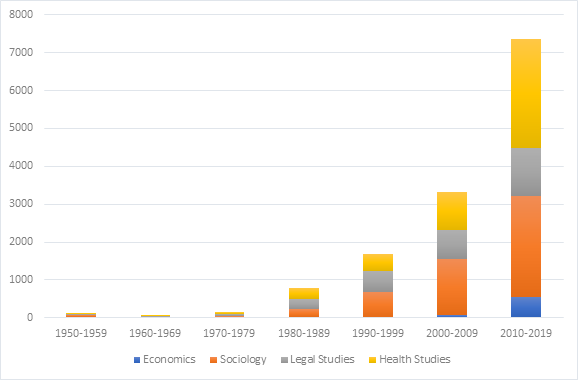
Number of research papers on forced displacement by decade and academic field (Source, Dionigi and Tabasso, 2020)
2. Robust and ambitious research can have direct effect on policy. Work on the impact of the Colombian President’s amnesty program in 2018 did just that, as it reassured policy-makers that the program had not had negative effects on host communities. These findings paved the way for a second amnesty in 2021, granting temporary protection status for 10 years to all Venezuelans on its territory. Encouragingly, we learned how the Inter-American Development Bank and the World Bank are now systematically sharing this experience with governments across the region (and beyond), extending the benefit of the research even further. Encouragingly, research demonstrates that these permits have had large benefits for recipient households.
3. The topic of IDPs still receives less attention by the research community than what the scale and magnitude of the challenge warrants. IDPs were a point of emphasis for this Conference. Among the findings, the society-wide benefits of Colombia’s ambitious reparations program for the victims (IDPs) stood out. The research shows that the program led to a sizeable increase in university enrollment rates, and greater investments in children more generally.
4. Positive and negative effects of large cash-transfer programs in Lebanon and Turkey were discussed in several papers. We heard evidence on education benefits and overall poverty reduction among refugees. However, the findings also demonstrated that the benefits ceased once the money stopped flowing, pointing to the struggle for refugees to cope without access to sustainable social protection alternatives.
5. In terms of the impact of asylum, academia has generated a growing corpus of evidence on the short-, medium-, and long-term impacts of hosting those forcibly displaced, as summarized in several issues of the JDC’s Quarterly Digests. Moreover, papers presented at the conference also point to the benefits for the countries of origin. Drawing on the experience of Vietnamese “boat people” hosted by the United States, one paper demonstrated the increase of foreign direct investment to the country of origin (Vietnam) from this group of refugees. Similarly, focusing on former Yugoslavia, another study showed how returnees who had been in Germany brought back valuable labor market skills, and those firms that employed former refugees tended to improve their economic performance.
6. Studies on Syrian refugees in Lebanon and Jordan showed that (1) the willingness to return is determined by the conditions in their home country (rather than “push factors” in the host country); and (2) inclusive policies – such as access to health and education – in the host country have little or no impact on their willingness to return.
7. Looking forward, we learned about the value from longitudinal investments, and how ongoing data collection efforts in Jordan, Kenya, and Bangladesh – and subsequent analyses – will give unparalleled evidence on the livelihood and life trajectories of refugees. The results will give us an understanding of their willingness to return, their psycho-social wellbeing and the impact of humanitarian intervention, over time. Such long-term, high-quality panel data and analysis have been sorely missing.
8. Closer to home, the Conference confirmed that JDC is an appreciated contributor to significantly increasing data and analysis on forced displacement writ large. The participants repeatedly referred to the JDC’s Newsletter/the Literature Review database, and our Quarterly Digest. We also heard positive feedback on our role as a connector with relevant World Bank and UNHCR networks, and appreciation for our efforts in creating platforms for interaction, such as the Conference itself
Finally, at the Conference we identified areas and topics that would benefit from more attention by the research community:
- Stateless people;
- Sub-Saharan Africa, particularly the Sahel, the Sudans and DRC, recognizing both the scale and complexity of the forced displacement situation;
- Displaced children, whether early childhood or adolescents; and
- “Service delivery”, including the question of integrating displaced populations into national systems rather than creating parallel mechanisms.
There was also a general sense that researchers, practitioners and policy-makers should (jointly) do more to create protocols and give guidance on the ethical considerations associated with research on forced displacement.
Taking the evidence and findings forward, the JDC will work with partners to ensure uptake by decision-makers and practitioners. We will be disseminating the findings and take-aways by supporting specific policy and programming dialogues with host countries, and we will make the data and analysis “digestible” for policy-makers, including by organizing seminars, publishing blogs and disseminating the material using JDC’s existing knowledge products.
The Conference Program contains links to all available working papers and presentations, as well as to YouTube videos from each session.
Conference Program
(Time: EST/CET)
Day 1: January 20, 2022
Opening remarks (Watch the recording from the Conference opening remarks)
(08:00 – 08:30/14:00-14:30)
Mari Elka Pangestu, World Bank Managing Director of Development Policy and Partnerships
George William Okoth-Obbo, Special Adviser to the UN Secretary-General on the Responsibility to Protect
Paula Gaviria Betancur, Executive Director of Compaz Foundation and member of the UN Secretary-General’s High-Level Panel on Internal Displacement
Moderated by Björn Gillsäter, Head of the Joint Data Center on Forced Displacement
Session 1 : Cash transfer programs (Watch the recording from this session)
(08:30 – 10:30/14:30-16:30)
Food Aid and Refugee Coping Strategies: Evidence from a Regression Discontinuity Design, Mirko Vintar (Find the presentation of the paper during the Conference here.)
Children on the Move: Progressive Redistribution of Humanitarian Cash Transfers among Refugees, Berk Özler (Find the presentation of the paper during the Conference here.)
The short-lived effects of unconditional cash transfers to refugees, Onur Altındag
Keeping refugee children in school and out of work: Evidence from the world’s largest humanitarian cash transfer program, Murat Kirdar
Chaired by Abul Azad, Senior Economist, Joint Data Center on Forced Displacement
Session 2 : IDPs (Watch the recording from this session)
(10:45 – 12:45/16:45-18:45)
Prolonged Social Contact with Internally Displaced Migrants Does Not Reduce Prejudice Among Locals in Wartime Settings, Yang-Yang Zhou (Find the presentation from the Conference here.)
Violence, Displacement, and Support for Internally Displaced Persons: Evidence from Syria, Alexandra Hartman
Forced Displacement and Human Capital: Evidence from Separated Siblings, Sandra Sequeira
Displacement, a step on women’s marriage? Natural disasters and cultural norms, Laura Muñoz Blanco
Chaired by Samuel Cheung, Chief, Internal Displacement Section, UNHCR
Panel discussion (Watch the recording from this discussion)
From Research to Policy: Addressing Forced Displacement
(13:00 – 14:15/19:00-20:15)
Blaise Bienvenue Ali, Director General, Institute of Statistics and Socioeconomic Studies of the Central African Republic
Ninette Kelley, author of “People Forced to Flee: History, Change and Challenge” and former UNHCR Representative, Lebanon
Carolina Sánchez-Páramo, Global Director of the Poverty and Equity Global Practice (GP), World Bank
Moderated by Domenico Tabasso, Senior Economist, Joint Data Center on Forced Displacement (JDC)
Day 2: January 21, 2022
Session 3: Impact of forced displacement (Watch the recording from this session)
(08:00 – 09:30/14:00-15:30)
Refugees and Foreign Direct Investment: Quasi-Experimental Evidence from U.S. Resettlements, Anna-Maria Mayda
Exports “brother-boost”: the trade-creation and skill-upgrading effect of Venezuelan forced migration on Colombian manufacturing firms, Carlo Lombardo (Find the presentation of the paper from the Conference here.)
Immigration and Violent Crime: Evidence from the Colombia-Venezuela border, Ana Maria Tribin
Chaired by Patrick Brock, Senior Data Scientist, Joint Data Center on Forced Displacement
Session 4: Innovations in data collection (Watch the recording from this session)
(09:45 – 11:15/15:45-17:15)
Drought-induced migration in Brazil: a quantitative analysis of internal displacement from the Northeast region due to water scarcity using survey microdata and gridded meteorological data, Guilherme M. Dutra & Marianne B. P. Brum (Find the presentation from the conference here.)
Violence and Internal Displacement: Insights from Nationwide Mobile Phone Data, Xiao Hui Tai
Automated Chat Application Surveys Using WhatsApp, Jessica Sadye Wolff & Beza Tesfaye
Chaired by Christelle Cazabat, Research Manager, Internal Displacement Monitoring Centre (IDMC)
Session 5 : Returnees (Watch the recording from this session)
(11:30 – 13:00/17:30-19:00)
The Dynamics of Refugee Return: Syrian Refugees and Their Migration Intentions, Daniel Masterson (Find the presentation of the paper during the Conference here.)
Refugee Return and Social Cohesion, Isabel Ruiz (Find the presentation of the paperfrom the conference here.)
Chaired by Nessa Kenny, Program Manager, Peace & Recovery Program, Innovations for Poverty Action (IPA)
(A Side Conversation with Edward Miguel will take place at 12:45 -13:15/18:45 -19:15)
Keynote (Watch the recording from this Keynote address)
(13:15 – 14:15/19:15-20:15)
Tracking Refugee Life Outcomes:
An Initial View from the Syrian Refugee Life Study (S-RLS)
Edward Miguel, Oxfam Professor of Environmental and Resource Economics and Faculty Director of the Center for Effective Global Action at the University of California, Berkeley
Moderated by Quy-Toan Do, Senior Economist, Development Research Group, World Bank
(A Side Conversation with Edward Miguel will take place at 14:15 – 14:45 /20:15 – 20:45)
Day 3: January 22, 2022
Session 6: Migrant policies and outcomes (Watch the recording from this session)
(08:00 – 09:30/14:00-15:30)
Life Out of the Shadows: Impacts of Amnesties in Migrant’s Life, Sandra V. Rozo
Housing Subsidies as a Poverty-Reduction Strategy Evidence from Jordan’s Syrian Refugees during the COVID-19 Pandemic, Sarah Stillman & Emma Smith (Find the presentation of the Paper at the Conference)
Reparations as Development? Evidence from Victims of the Colombian Armed Conflict, Arlen Guarin
Chaired by Jeffery Tanner, Senior Economist, Joint Data Center on Forced Displacement
Session 7 : Attitudes (Watch the recording from this session)
(09:45 – 11:45/15:45-17:45)
Exposure to Transit Migration, Public Attitudes and Entrepreneurship, Sergei Guriev
First Time Around: Local Conditions and Multi-dimensional Integration of Refugees, Cevat Giray Aksoy
Can a Sense of Shared War Experience Increase Refugee Acceptance? Ji Yeon Hong
Can Aid Change Attitudes toward Refugees? Experimental Evidence from Microentrepreneurs in Urban Uganda, Olivia Woldemikael & Thomas Ginn
Chaired by Johannes Matzat, University of Goettingen
(A Side Conversation with Ana María Ibáñez will take place at 11:00 – 12:00/17:00- 18:00)
Keynote (Watch the recording from this Keynote address)
(12:00 – 13:00/18:00-19:00)
Promoting Recovery and Resilience for Forced Migrants: Lessons from Colombia
Ana María Ibáñez, Principal Economics Advisor at the IDB and a Professor at the School of Economics in Universidad de los Andes
Moderated by Andrés Moya, Associate Professor at the School of Economics, Universidad de Los Andes
Closing Conversation and Looking Forward (Watch the recording from the closing conversation)
(13:00 – 13:30/19:00 – 19:30)
Dr. Saja Al Zoubi, Development Economist, Department of Politics and International Relations (DPIR), University of Oxford
Andrés Moya, PhD, Associate Professor at the School of Economics, Universidad de Los Andes
Björn Gillsäter, Head of the Joint Data Center on Forced Displacement
Opening Speakers
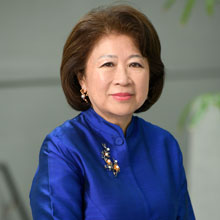
Mari Elka Pangestu
Mari Pangestu is the World Bank Managing Director of Development Policy and Partnerships. In this role, which she assumed on March 1, 2020, Ms. Pangestu provides leadership and oversees the research and data group of the World Bank (DEC), the work program of the World Bank’s Global Practice Groups, and the External and Corporate Relations function. Ms. Pangestu joined the Bank with exceptional policy and management expertise, having served as Indonesia’s Minister of Trade from 2004 to 2011 and as Minister of Tourism and Creative Economy from 2011 to 2014. She has had vast experience of over 30 years in academia, second track processes, international organizations and government working in areas related to international trade, investment and development in multilateral, regional and national settings.
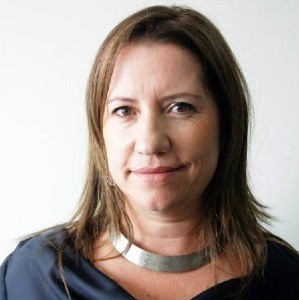
Paula Gaviria Betancur
Paula Gaviria Betancur is the executive director of Compaz Foundation. She is a lawyer and journalism specialist, with postgraduate degrees in public opinion and political marketing. Gaviria is a member of the UN Secretary-General’s High-Level Panel on Internal Displacement. She is the former Presidential Advisor for Human Rights in Colombia and former director of The Victims Unit. Gaviria was actively involved in the drafting of the victims’ chapter on the Final Peace Agreement signed between the Colombian Government and the FARC-EP, where she advocated the inclusion of the victims’ voices in the dialogue process.
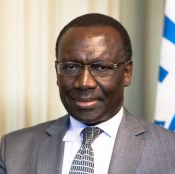
George William Okoth-Obbo
George Okoth-Obbo is the in-coming Special Adviser of the Secretary-General on the Responsibility to Protect (R2P), a position to which he was appointed upon completing in December 2021 an assignment as Assistant Secretary General, Secretary and Head of the Secretariat of the United Nations Secretary-General’s High-Level Panel on Internal Displacement. He was appointed to the latter position in December 2019 when he was at that stage serving as UNHCR’s Assistant High Commissioner for Operations. His UNHCR career started in 1984 as an Associate Protection Officer in Botswana before becoming Protection Officer in the UNHCR Operation in Swaziland (1987) and later in Lesotho also as Protection Officer (1987-1989). He was then reassigned to UNHCR Headquarters in Geneva in 1989 as Senior External Relations Officer before becoming Senior Legal Adviser in the Organization’s Regional Bureau for Africa. In 1995, he was reassigned to Ethiopia as Assistant Representative for Protection. In 1998, he moved to the UNHCR Regional Directorate for Southern Africa in Pretoria first as its Senior Policy Officer (1998 – 2000) and then as Deputy Director (2000-2001). He then served as UNHCR Representative in Zambia (2001) and after that as Representative for Kenya from 2001 to 2006. In the latter year, he took up the position of Director of the Division of International Protection Services at UNHCR Headquarters which he held until being appointed as the Director of the Regional Bureau for Africa with effect from July 2009. He served in this position until he was appointed as Assistant High Commissioner for Operations in February 2015.
Mr. Okoth-Obbo is a national of Uganda. He graduated with a Batchelor of Laws degree from Makerere University in his country, holds a Diploma in Legal Practice from the Law Development Centre in the same country and earned a Master of Laws from the University of Nairobi in Kenya. Before joining UNHCR, he was a Lecturer in law, respectively, at the said Law Development Centre and the Faculty of Law at Makerere University. Mr. Okoth-Obbo is married to Esther Okoth-Obbo. They have two children.
Welcome Note

Björn Gillsäter
Björn Gillsäter is the Head of the Joint Data Center on Forced Displacement, based in Copenhagen, Denmark. Prior to this, he was the World Bank Group’s Special Representative to the United Nations in New York. Björn joined the Bank in 2001 as Senior Advisor to the Nordic-Baltic Executive Director. He has more than two decades of experience, working on multilateral affairs, both as a government official with the Swedish Ministry of Finance, and with several international organizations. Some of the other positions he has held include serving as: Alternate Executive Director at the African Development Bank; Chief for Multilateral System Analysis with UNICEF; and Head of the Multilateral Organization Performance Assessment Network (MOPAN) at the OECD.
Keynote Speakers
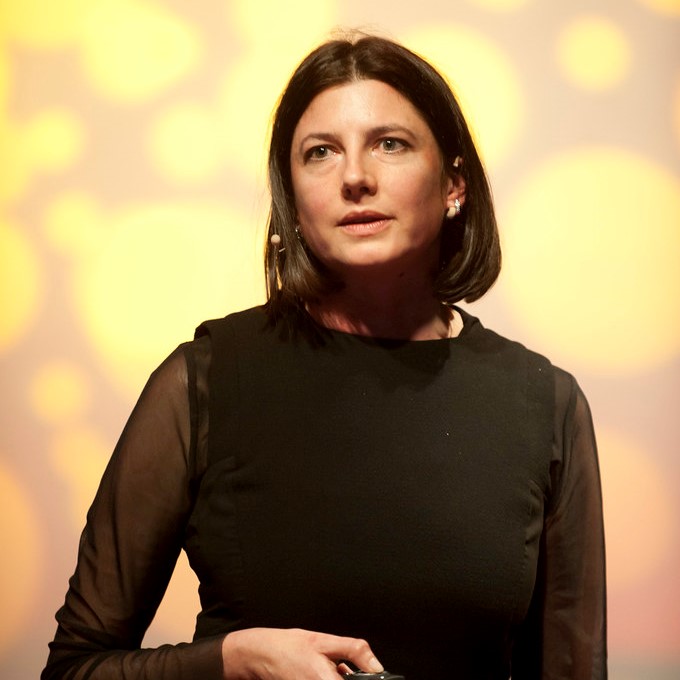
Ana María Ibáñez
Ana María Ibáñez is a Principal Economics Advisor at the IDB and a Professor at the School of Economics in Universidad de los Andes. She is the former Dean of the School of Economics at Universidad de los Andes and former the Director of the Economic Development Research Center (CEDE) and holds a PhD in Agricultural and Resource Economics from the University of Maryland at College Park. Professor Ibáñez’ research studies the economic consequences of internal conflict, in particular the costs of war and conflict upon the civil population. Her research has been published on Economic Development and Cultural Change, Journal of Development Studies, Journal of Economic Geography, Journal of Peace Research, International Regional Science Review, World Development, The Economics of Peace and Security Journal, and Economia. She has published chapters in nine books and a book on the economic consequences of forced displacement in Colombia. In 2010 Professor Ibáñez’ received the Juan Luis Londoño award, a medal given biannually to the Colombian economist younger than 40 years who has contributed to improve the social conditions of Colombians. She was a Visiting Professor at the MacMillan Center (Yale University) in 2016, and at the Program of Latin American Studies (Princeton University) in 2018.
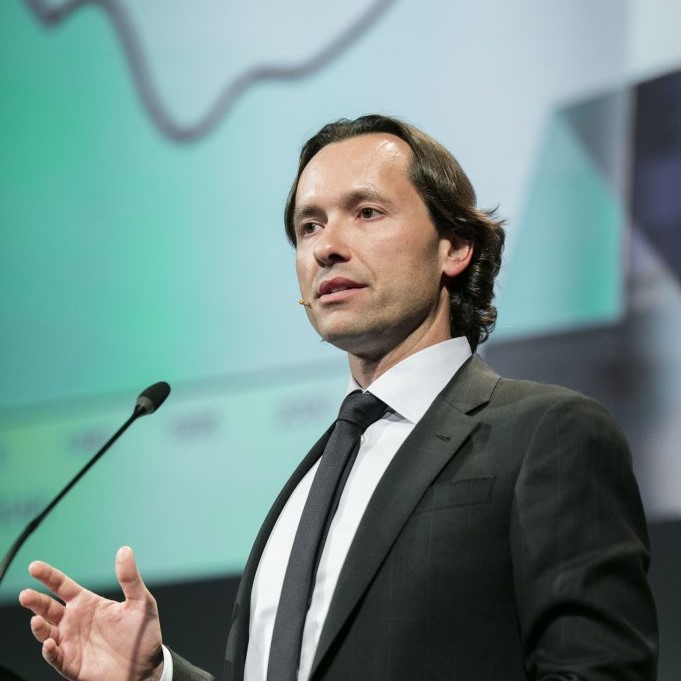
Edward Miguel
Edward Miguel is the Oxfam Professor of Environmental and Resource Economics and Faculty Director of the Center for Effective Global Action at the University of California, Berkeley, where he has taught since 2000. He earned S.B. degrees in both Economics and Mathematics from MIT, received a Ph.D. in Economics from Harvard University, where he was a National Science Foundation Fellow, and has been a visiting professor at Princeton University and Stanford University. Ted’s main research focus is African economic development.
Panelists
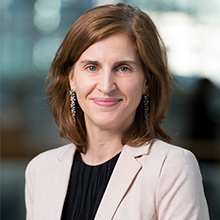
Carolina Sánchez-Páramo
Carolina Sánchez-Páramo is the Global Director of the Poverty and Equity Global Practice (GP) at the World Bank. She is a Spanish national, is currently the Global Director of the Poverty and Equity Global Practice (GP) at the World Bank. Prior to this assignment, she was the Poverty and Equity GP Practice Manager in the Europe and Central Asia region. Carolina has worked on operations, policy advice and analytical activities in Eastern Europe, Latin America and South Asia, and was part of the core team working on the WDR2012, “Gender Equality and Development”.
Her main areas of interest and expertise include labor economics, poverty and distributional analysis, gender equality and welfare impacts of public policy. She has led reports on poverty and equity, labor markets and economic growth in several countries, as well as social sector operations. She has published articles in refereed journals and edited books on the topics described above. Carolina has a PhD in Economics from Harvard University.

Ninette Kelley
Ninette Kelley is the author of “People Forced to Flee: History, Change and Challenge”, former UNHCR representative in Lebanon.
Ninette Kelley is a former senior officer in UNHCR. She recently completed a book for UNHCR to commemorate the 70th anniversaries of the creation of the Office (2020) and of the 1951 Convention Relating to the Status of Refugees (2021). People Forced to Flee: History, Change and Challenge will be published by Oxford University Press in February 2022. It reflects back and looks forward: drawing on the lessons of history to probe how we can improve responses to forced displacement.
Kelley has also held various policy and consultative roles with international humanitarian agencies focusing on development, immigration and refugee issues. In Canada she served eight years on the Immigration and Refugee Board (IRB). She is the author of The Making of the Mosaic: The History of Canadian Immigration Policy, University of Toronto Press, 2nd edition, October 2010 (with Michael Trebilcock) and has published in the areas of human rights law, citizenship, refugee protection, gender related persecution and the Canadian Charter of Rights and Freedom. She is a lawyer by training.
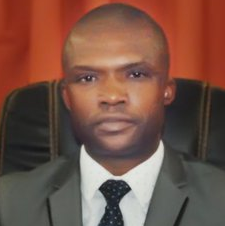

Domenico Tabasso
Domenico Tabasso is a Senior Economist with the Center. Previously, he worked with the Policy Evaluation Unit of the International Labour Organization (ILO) Research Department, where he analyzed the effects of labor market policies in emerging and developing countries. He has also contributed to the work of the ILO within the IFC-ILO-UNHCR-UNICEF-WB and Government of Netherlands partnership on Inclusive Jobs and Education for Forcibly Displaced Persons. Domenico has held academic positions at the universities of Essex, Geneva, and Melbourne, publishing several policy reports and academic articles. He holds a B.Sc in Economics from Bocconi University, and an M.Sc and a Ph.D in Economics from the University of Essex.
Closing Conversation

Dr. Saja Al Zoubi
Dr. Saja Al Zoubi is a development economist who specializes in and teaches Gender and Forced Migration & Middle East Politics. She is a lecturer at the Department of Politics and International Relations (DPIR), University of Oxford, and visiting scholar at Glasgow University. Her research has focused on issues of gender and rural development, including women’s empowerment, and its role in the development. Since the war broke out in Syria, her concern has been researching ways to improve the livelihoods and food security of affected households (IDPs and refugees), especially women-headed households. Al Zoubi is the recipient of numerous awards and fellowships from international and regional universities and foundations. She is the recipient of numerous awards, from the Syrian Scientific Agricultural Research center and the Ministry of Agriculture and Agrarian Reform, UNESCO, the Arab League, the the Arab Women Organization, and the Open Society Foundation.

Andrés Moya, PhD
Andrés Moya, PhD, is an Associate Professor at the School of Economics, Universidad de Los Andes in Bogotá, Colombia. He has a PhD in Agricultural and Resource Economics from the University of California, Davis and Master’s and Bachelor’s degrees in Economics from Universidad de Los Andes. He is a member of EGAP and a member of the scientific committee of the Colombian Longitudinal Survey of Universidad de Los Andes (ELCA). His research falls in the fields of Development and Behavioral Economics focusing on the economic, psychological, and behavioral consequences of violence and forced displacement in Colombia. In his research, Andrés has analyzed the effects of violence and psychological trauma on: (1) different dimensions of behavior, such as risk aversion, risk perceptions, and hope; (2) cognitive and socioemotional skills; (3) early childhood development; and (4) performance in job-training programs and in the labor market. A second area of his research agenda focuses on the relationship between poverty, inequality, and human capital accumulation. Currently, Andrés is leading the implementation and impact evaluation of Semillas de Apego, a group-based psychosocial intervention for primary caregivers, which aims to foster early childhood development among children exposed to violence in Colombia.
Replay: Conference Day 1
Replay: Conference Day 2
Replay: Conference Day 3
